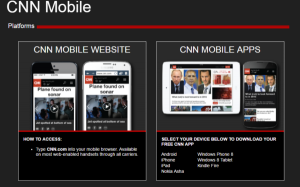US consumers broadly skeptical about online privacy protection claims.

The overwhelming majority of Americans want to be able to control their information online and who gets access to it. However, in a wide-ranging and nuanced Pew Research Center survey, most respondents seem resigned to fewer online protections and less privacy.
(Pew also investigates attitudes toward government surveillance programs, which I don’t discuss here but which can be explored in the report.)
The data are drawn from two related consumer surveys conducted in Q3 2014 and Q1 2015. The first survey had 498 US adult respondents and the second 461.
The first chart below summarize survey respondents’ attitudes toward privacy: when is it important and how do those attitudes vary by category of activity? More than 90 percent said it was “very important” or “somewhat important” that they are “in control of who can get info about you” as a general proposition.

The privacy expectations and desires decline sharply when it comes to work environments. Only 56 percent said it was very or somewhat important to have privacy and not be monitored at work.
Pew respondents expressed the greatest confidence in credit card companies to keep their financial data private and secure. The US government and telephone companies were next in the hierarchy of trust. At the other end of the spectrum (below), online advertising and social media platforms saw the least trust and confidence.
Nearly 80 percent of Pew survey respondents expressed little confidence that online advertisers could be trusted with their information. Nearly 70 percent also didn’t trust social media sites to maintain the privacy and security of their data. And 66 percent said the same thing about search engines — they didn’t think their activity records would remain private and secure.

As a comparison of the charts suggests, consumers consistently express strong privacy opinions in the abstract but often moderate them under specific circumstances or scenarios. The challenge for Facebook, Google and others is to try and balance the desire for more data, tracking and targeting (for marketers) with the need to maintain some degree of consumer confidence and trust. As these data imply, it’s a difficult tightrope to walk.
For those interested, there are a great many more detailed findings in the report.
(Some images used under license from Shutterstock.com.)
Marketing Land – Internet Marketing News, Strategies & Tips
(236)








